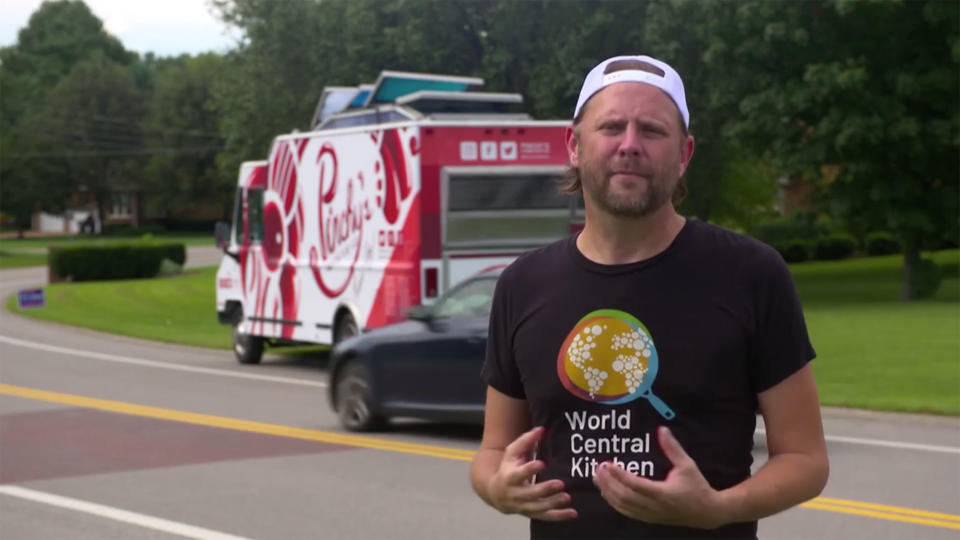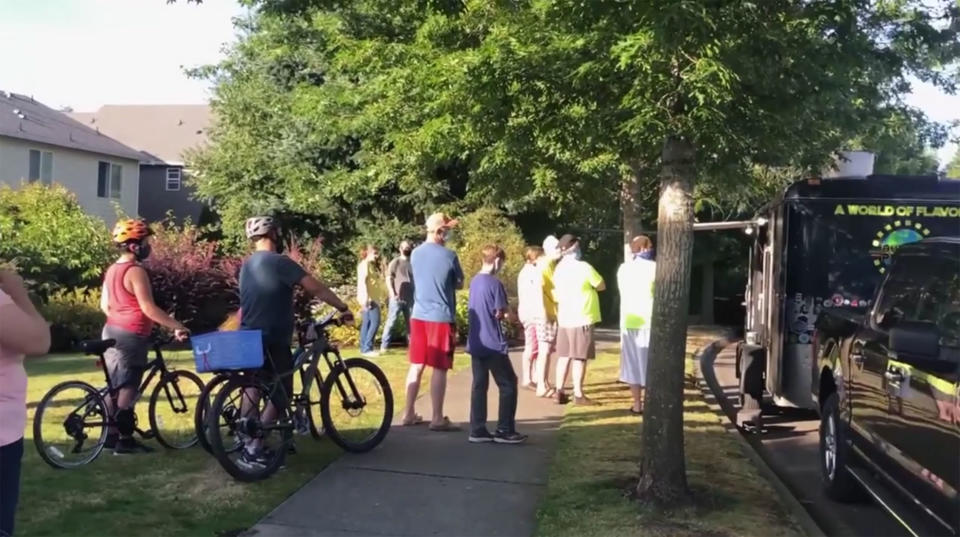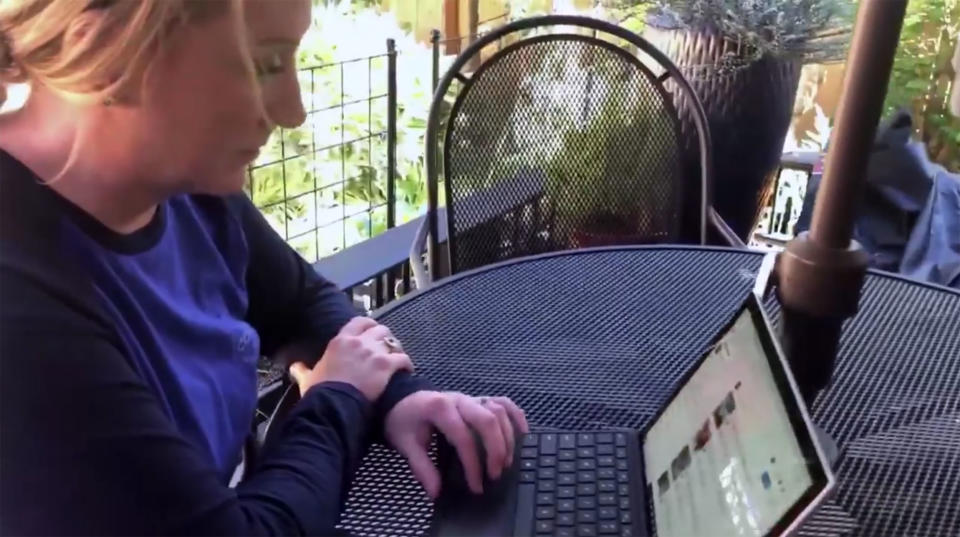Food trucks find new life in the suburbs amid the pandemic
The coronavirus pandemic has had a enormous effect on the restaurant industry: Owners have had to think creatively to make their dining rooms safe, and outdoor dining has become a staple in most cities. Many places have struggled to hold on as social distancing measures and fewer patrons have affected their bottom lines, and in many states, indoor dining is still restricted.
One area of the food industry that has actually seen some new growth? Food trucks.
In previous years, food trucks were staples at big events and festivals, so when the coronavirus pandemic ended large events for the foreseeable future, they started losing business.
To save their businesses, many pivoted towards the suburbs, setting up shop in more accessible locations.

BJ Lofback, who operates Pinchy's Lobster Co., a food truck in a neighborhood just outside Nashville, Tennessee, said that business has been booming ever since he moved his truck out to the suburbs.
"We are seeing people just clamoring to have food trucks in their neighborhoods," Lofback, whose truck specializes in lobster rolls, told NBC correspondent Joe Fryer on TODAY. "They can't wait to have us. And every single night we're there, it's a very, very profitable thing from a business standpoint."
Related: Giselle Aviles posted a plea on Twitter to help her dad's struggling food truck — and it worked.
Becca Fox, a mom who lives near where the truck sets up, said that her family has loved having access to gourmet food just steps from their house.
"It gave us something super fun to look forward to, gave us the night off from cooking," she said. "... (It) kinda gave (us) a good, great sense of community, even though we were still social distancing and spacing out."
With masks required at most locations, lines kept socially distanced and outdoor dining the only option, the trucks are an ideal way to get a chef-cooked meal during the pandemic. Many require ordering online, which allows for even less interaction between cooks and consumers.

It's not just single trucks, either: In Marina Del Ray, near Los Angeles, California, a parking lot filled with food trucks gives diners plenty of options to choose from. Customers told Fryer that they had tried everything from Japanese food to vegan hot dogs to even more lobster options.
Pete Crest, who owns and operates Roll N' Lobster, said that the setup has done so well, he's been able to open up a second truck.
"With 80% of the workforce at home, we've lost most of our lunches," he explained. "So you reinvented the wheel, everyone's going to the (homeowner's associations) and bringing the food to the people."
The food trucks are aided by social media sites like Facebook and Nextdoor (in which NBCUniversal's parent company Comcast is an investor). Some post their locations on the neighborhood app, while others use local Facebook pages to connect with community residents.

In a suburb outside Seattle, Washington, resident Julie Schwab has helped support food trucks by starting a Facebook page to promote them and let them share their schedule with residents.
"We're all in this together," Schwab told Fryer. "Even though we're separated, even though we have masks, we still are together, we're still a community, even if it's the suburbs."
To find food trucks in your neighborhood, check out Best Food Trucks, a website that allows you to find nearby food trucks or schedule a truck for your own small event. Simply type in your address and find out what's available in your area.
